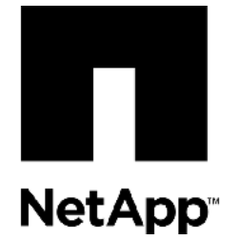
Azure File Storage
Azure File Storage provides fully managed file shares accessible via SMB and NFS protocols, enabling seamless integration with Windows, macOS, and Linux clients. It allows users to replace or enhance on-premises file servers, facilitating cloud-based application development, diagnostics, and containerization while ensuring data accessibility and efficient file management across environments.
Top Azure File Storage Alternatives
Amazon Elastic File System (Amazon EFS)
Amazon Elastic File System (Amazon EFS) is a fully elastic file storage solution designed for seamless integration across various AWS compute instances.
DataCore Software-Defined Storage
DataCore's Software-Defined Storage transforms storage management by centrally automating capacity provisioning and data placement across diverse environments.
Amazon Simple Storage Service (S3)
Amazon Simple Storage Service (S3) offers scalable object storage, ensuring exceptional data availability, security, and performance.
Azure Storage Explorer
Azure Storage Explorer provides a powerful cloud storage management solution, allowing users to effortlessly handle Azure storage accounts across various operating systems such as Windows, macOS, and Linux.
Lucidity
Lucidity revolutionizes cloud storage management by automating the dynamic resizing of block storage across AWS, Azure, and Google Cloud.
Azure Blob Storage
Azure Blob Storage offers scalable and cost-effective object storage tailored for unstructured data, supporting diverse workloads such as archives, data lakes, and machine learning.
NetApp BlueXP
By integrating advanced AIOps and centralized license management, it empowers organizations to efficiently build, protect...
IBM Cloud Object Storage
It features built-in encryption, multi-region support, and seamless integration with the IBM Cloud ecosystem...
Cisco UCS Manager
With capabilities such as server provisioning, device discovery, and fault detection, it integrates seamlessly with...
IBM Cloud File Storage
Users can create zonal file shares ranging from 10 to 32,000 GB, benefiting from flexible...
Caringo Swarm
Its architecture supports demanding workloads in HPC and AI, ensuring data protection and compliance...
DigitalOcean Spaces
With per-bucket access keys enhancing security, it provides high performance with up to 1500 requests...
Replay.io
By capturing and replaying application data during execution, it allows developers to effortlessly analyze issues...
Verizon Cloud
Utilizing the extensive network, it facilitates real-time innovation and enhances operational efficiency...
QuantaStor Software Defined Storage
By utilizing open-source technologies like Ceph and OpenZFS, it significantly lowers enterprise storage costs while...
Azure File Storage Review and Overview
Just the way your regular, tangible substances such as clothes, vegetables, etc. need a storage pace, digital data requires a home too. It’s essential to choose a secure storage option where your data can rest without any interference. Azure File Storage is one such fully-managed storage solution. It’s been built to support an assortment of use cases, including migration of applications to the cloud, hosting HA workload data, sharing server data across platforms, etc. It employs the industry-standard SMB (Server Message Block) 3.0 protocol to enable you to leverage cloud storage for your existing applications from anywhere in the world.
Fully-managed file shares with Azure File Storage
Azure File Storage helps in performing fully managed file shares for existing on-premise applications. With no requirement for OS deployments and hardware management for Azure Files, you can minimize the maintenance overhead. Being SMB 3.0 compliant, it employs all industry-standard encryptions as well as persistent handles so that you can perform transfers across frameworks without breaking any code or making any changes to legacy applications. So, between the on-premise and Azure cloud, the applications can share files seamlessly and concurrently with multiple machines.
Get cross-platform availability with hybrid flexibility
When it comes to on-premise file shares, you can mount these shares on Windows, Linux, as well as macOS. Automations are quick and fast with Azure CLI and PowerShell. Administrators using Azure Explorer or the Portal can easily automate Azure Files for better performance. With geo-redundancy, it can store files across multiple Azure data centers spread across the globe. It ensures over 99.99% of data durability. Plus, with the persistent handles from SMB 3.0, it also provides high availability when you are hosting applications in Azure’s shared file storage.
A smart and secure solution for file storage
Azure File is a smart solution. To access performance locally, its File Sync agent also lets you cache the shares in Windows servers, available on-premise. So, even when high latency and low bandwidths prevail, you can access your files quickly. With SMB 3.0 and HTTPS compliance, you can be sure that your data is secured. It also offers REST API and Client Libraries for further convenience in storage. With IO-intensive and performance-sensitive workloads, you can rely on premium shares.
Top Azure File Storage Features
- Fully managed file shares
- Accessible via SMB protocol
- Accessible via NFS protocol
- Azure Files REST API
- Concurrent mounting capabilities
- Windows
- Linux
- macOS support
- Identity-based authentication
- Integration with Azure File Sync
- Simplified lift and shift
- Centralized shared application settings
- Convenient diagnostic share
- Dev/Test/Debug utility access
- Persistent volumes for containers
- Hybrid cloud deployment support
- Global accessibility
- On-premises Active Directory integration
- Performance caching with Azure File Sync
- Simplified cloud development
- Supports distributed applications
- Easy log and metric storage
Top Azure File Storage Alternatives
- Amazon Elastic File System (Amazon EFS)
- DataCore Software-Defined Storage
- Amazon Simple Storage Service (S3)
- Azure Storage Explorer
- Lucidity
- Azure Blob Storage
- NetApp BlueXP
- IBM Cloud Object Storage
- Cisco UCS Manager
- IBM Cloud File Storage
- Caringo Swarm
- DigitalOcean Spaces
- Replay.io
- Verizon Cloud
- QuantaStor Software Defined Storage














